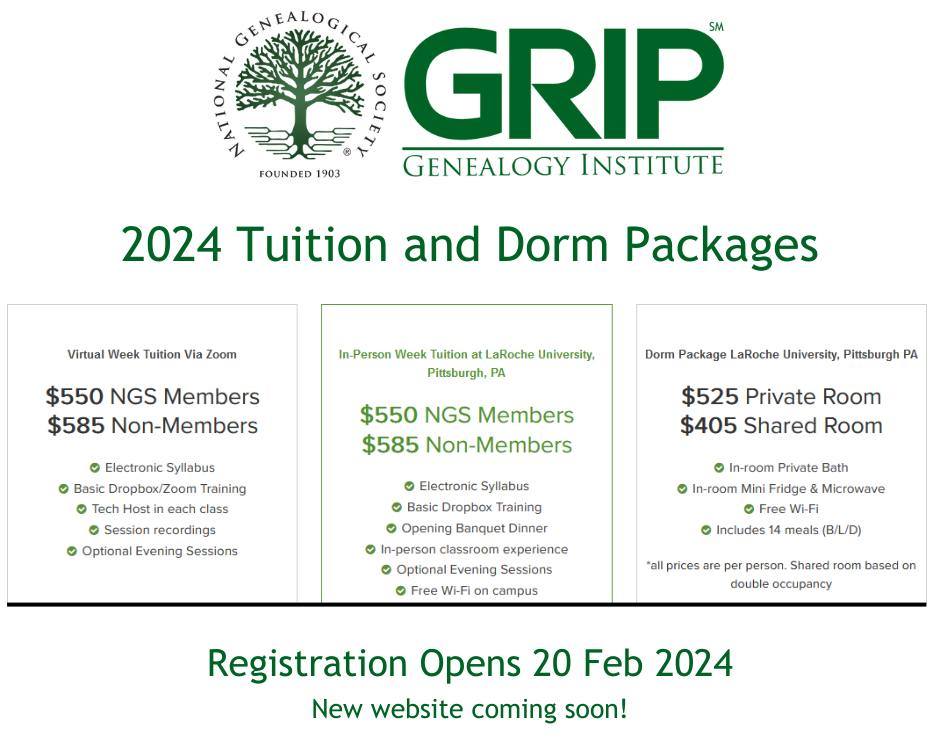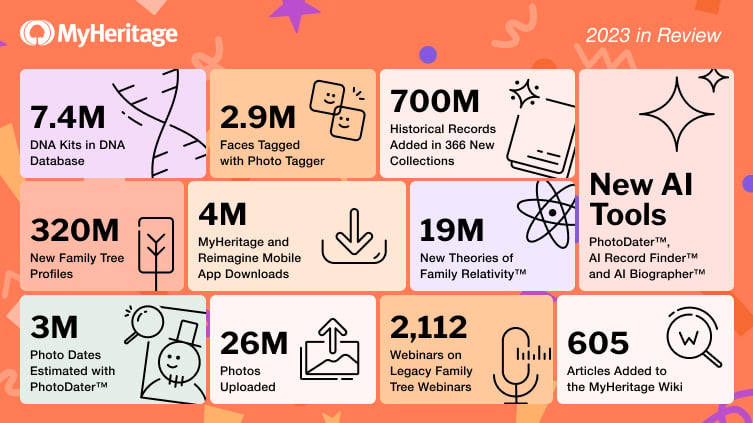2024 GRIP “Digging Deeper: Records, Tools, and Skills” Course Details
Update: The GRIP website is finally live! https://grip.ngsgenealogy.org/
This week I am sharing some additional details on the 2024 GRIP Course, “Digging Deeper: Records, Tools, and Skills.” I will post over several days due to the length of all the details. Watch for those details on the individual sessions in upcoming posts about this course that is on the intermediate level. The National Genealogical Society will soon post more details about all courses and how to register.
Coordinator: Paula Stuart-Warren, CG®, FMGS, FUGA
My fellow instructors are amazingly experienced in their topics:
Amy E. K. Arner, CG
Cyndi Ingle
Debbie Mieszala, CG
Paula Stuart-Warren, CG
Cari Taplin, CG
This may be your course! It covers 19th through 21st century U.S. records, online resources, and methodology. If you answer yes to any of these questions, this is your course.
- Are you past the beginning stages of researching your family history?
- Have you researched online but know there is more elsewhere or that you have missed some online resources?
- Do you need a stronger foundation before taking advanced or specialized courses?
- Are you not yet comfortable with in-depth evaluation of documents and setting up research plans?
When we have checked basic records and done online searches but still have missing details, we need more leads and a better job of analyzing the records. We will dig deeper into a variety of records, some you may have never heard about, and where they are found. There will be several hands-on and interactive activities, small group discussions, and full class interaction.
Personal brick wall opportunity. A special course aspect involves receiving advice for one of your research brick walls. In late March of 2024, registrants will receive specific details and a firm deadline about sending the coordinator a brief research issue. These will be shared in the course syllabus. At the end of Monday through Thursday, we will work together to help solve these mysteries.
Best ways to take advantage of the week. The course includes a “homework” group project that is optional but strongly suggested. Past students found they gained much through these exercises. An extensive syllabus including both online and offline resources is provided for this course, and you do need to read ahead for each day. A helpful suggestion is that you work on a laptop, desktop computer, or electronic tablet for taking notes and especially for research on the week’s activities and the in-class hands-on work. Adding a larger extra external monitor is even better for your work during the week.




